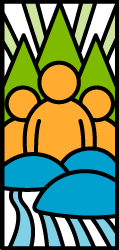Jamie Lanier

Jamie Lanier
Current Position
Student (senior), Purdue University; Student Career Experience Program (SCEP) with the US Fish and Wildlife Service
Previous Position
Internships with Purdue Cooperative Extension Services; Quivira National Wildlife Refuge and Bear River Migratory Bird Refuge
Education
B.S. in Wildlife Science with a specialization in Communications
Q & A
It is imperative that students prepare themselves in high school for the intensity of the course work given in college. Science and math are highly emphasized in the natural resources field. Beyond the basics, i.e. biology, chemistry, genetics, calculus and statistics, students are required to take several courses in botany, population dynamics and ecology. I recommend that students push themselves to take advanced courses in high school to become more accustomed to the style and pace most college curriculums demand. Courses involving public communication and writing skills are very important. Students considering entering into this field should be aware of their options. Many colleges focus on the traditional expectations of wildlife biologists, foresters, fisheries biologists and natural resources managers. However, many options exist for graduates with degrees in these areas. Don't be discouraged if your chosen interests aren't heavily emphasized in the program that you choose. There are many ways to go about acquiring knowledge and gaining experience in the line of work you select that may not be readily promoted in your prospective departments. College is about networking and establishing connections with people across campus. It's these connections that could end up helping you to find the best fit for your interests.
In the past, wildlife biologists have been content to spend their days in the field, studying animals and conducting studies. Today, however, organizations are beginning to acknowledge the importance of incorporating the human element into their work. Employees will need to be able to communicate to large groups of people, to facilitate education programs and be the liaisons between man and nature. In my opinion, the emphasis on human dimensions in this field will only continue to grow in importance and the ability to work with diverse groups of people will be indispensable.
I've always been interested in working with animals. My background is a little different from that of most Wildlife Biologists as I was raised in an urban setting, but I've found that this curriculum best fit my needs as a student interested in environmental education at Purdue University. A degree in Wildlife Science fit my needs in many ways. For one, I was able to get the hands on experience with animals native to the area. Beyond that, I very much enjoyed the amount of time students in the Forestry and Natural Resources Department (FNR) got to spend out doors.
I am a biracial female. It's been very difficult for me to find a place in this field where I felt as though I truly belonged. I am the only minority in my department and one of the few females remaining from my original freshman class. In my experience, the majority of people entering into this line of work come from backgrounds with little diversity. Though I consider myself to be outgoing and friendly, I have found that my presence can sometimes make others uncomfortable and unsure of their approach.
Many of my friends ask me why I chose my area of study and my answer is always the same. There is something to be said about understanding nature; to know how a particular species of plant or tree affects an animal population; to really appreciate the circle of life to which we belong these are experiences I consider priceless. And although I enjoy many aspects of field work, I'd have to say that I am quite partial to performing population surveys because they allow me to become fully immersed in my surroundings. I find the entire experience to be quite humbling.

